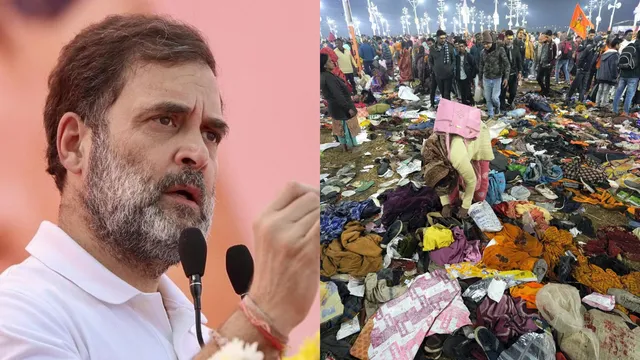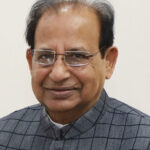Congress leader Rahul Gandhi is under fire from various political figures for not attending the Maha Kumbh in Prayagraj, a significant Hindu religious event that concluded on Wednesday. Union Minister Jitan Ram Manjhi remarked that questioning Gandhi’s participation is unnecessary, stating, “The leader who has already sunk the entire Congress party, how many more dips will he take?” citeturn0search3
The Bharatiya Janata Party has also criticized Gandhi’s absence. Amit Malviya, head of the BJP’s IT department, accused the Nehru-Gandhi family of visiting temples only during elections to deceive the majority community. He emphasized that the successful organization of the Maha Kumbh showcases the BJP and Prime Minister Narendra Modi’s commitment to promoting Sanatan Dharma. citeturn0search1
Union Minister Ramdas Athawale echoed similar sentiments, asserting that both Gandhi and Shiv Sena chief Uddhav Thackeray disrespected the Hindu community by not attending the event. He urged Hindu voters to boycott leaders who seek their votes but fail to honor significant religious gatherings like the Maha Kumbh. citeturn0search8
The Maha Kumbh, a 45-day festival held at the confluence of the Ganga, Yamuna, and the mythical Saraswati rivers, is considered one of the largest human gatherings globally. This year’s event saw participation from over 660 million devotees. citeturn0search1 Despite being in Rae Bareli on February 20-21, Gandhi did not visit the nearby Prayagraj to partake in the festivities. citeturn0search2
The absence of prominent opposition figures like Gandhi and Thackeray has provided the BJP with ammunition to question their commitment to Hindu traditions. Critics argue that such absences highlight a disconnect between these leaders and the cultural sentiments of the majority community. citeturn0search2
This criticism comes in the wake of previous instances where opposition leaders were accused of neglecting Hindu sentiments. For example, during the consecration ceremony of the Ram Temple in Ayodhya last year, key opposition figures were notably absent, leading to similar reproaches from the BJP. citeturn0search9
The BJP’s narrative suggests that the Congress and its allies engage with Hindu traditions selectively, primarily during election periods. This strategy, according to BJP leaders, aims to project a pro-Hindu image temporarily, without genuine commitment to the faith’s practices and events. citeturn0search1
In response, Congress representatives have dismissed these allegations as politicization of religious events. They argue that personal religious practices should not be subject to public scrutiny or used as tools for political gain. However, the absence of clear explanations from Gandhi and Thackeray regarding their non-attendance has allowed the BJP to dominate the narrative.
The Maha Kumbh’s significance in Hindu culture cannot be overstated. Held every 12 years, it symbolizes purification and spiritual rebirth. Political leaders often attend to connect with the populace and demonstrate respect for cultural traditions. Therefore, absences are conspicuous and can be interpreted as disengagement from mainstream cultural practices.
Political analysts note that in a country where religion and politics are deeply intertwined, participation in major religious events can influence public perception. Leaders seen as aligning with cultural and religious sentiments may garner broader support, while those perceived as indifferent risk alienating significant voter bases.
The BJP’s focus on Gandhi’s absence aligns with its broader strategy of positioning itself as the defender of Hindu traditions. By highlighting the non-participation of opposition leaders in events like the Maha Kumbh, the BJP reinforces its narrative of being more attuned to the cultural ethos of the majority.
As the political discourse intensifies, the Congress faces the challenge of addressing these perceptions. Clarifying the reasons behind their leaders’ absences or increasing engagement with cultural events could be potential strategies. However, balancing genuine religious participation with political optics remains a delicate endeavor.
The ongoing debate underscores the intricate relationship between religion and politics in India. Leaders’ actions concerning cultural and religious events are not merely personal choices but carry significant political implications. As parties prepare for upcoming elections, their engagement with such events will likely continue to be a focal point in the battle for public support.




 Congress Leadership Rallies in Delhi Amidst Assam Party Turmoil
Congress Leadership Rallies in Delhi Amidst Assam Party Turmoil 